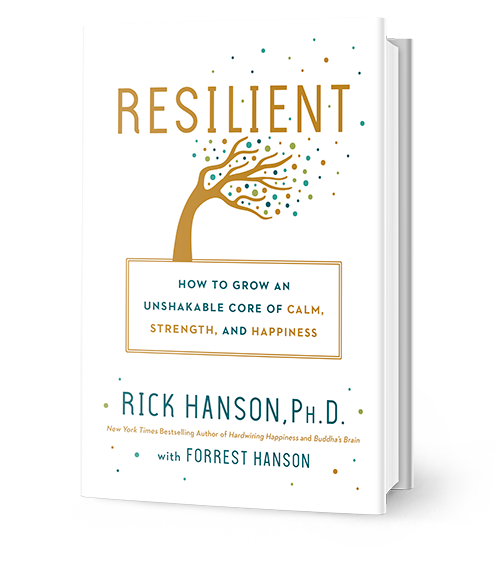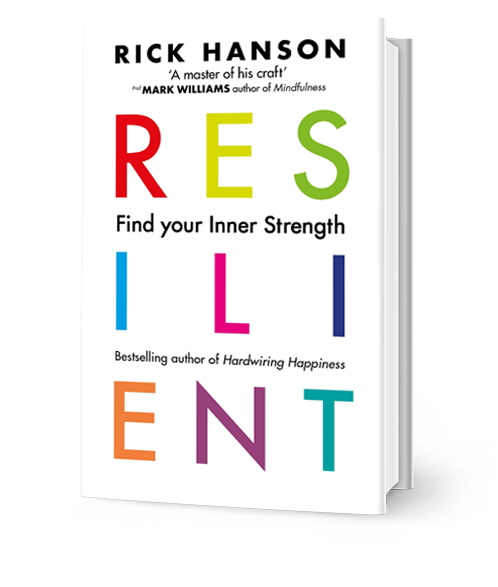20 Mar How Your Childhood Experiences Shape You
Your experiences as a child make a big impact on your own sense of autonomy, and how it affects your relationships.
In my new book Resilient I offer practical strategies for growing the 12 inner-strengths you need for lasting well-being in a changing world.
In the excerpt below, we’ll explore how your childhood has impacted one of those: Intimacy.
I was isolated and withdrawn as a child, and much of the time it felt like I was observing people from a great distance, as if I were on the outside of a restaurant window looking in, watching people talking and laughing together. I could see but not touch, hear but not speak. It took me a long time to get up the nerve to come in from the cold. I gradually opened up, slowly but surely knowing and being known by others, and becoming increasingly connected with them.
A strong sense of autonomy – that you are your own person and make your own choices – fosters depth in our relationships. For example, when you feel grounded in your body, it’s easier to stay open to the feelings of other people. When you take care of your needs, there’s a natural receptivity to the needs of others. Knowing you can step back aids stepping in.
Much as autonomy enables intimacy, intimacy supports autonomy. Close and nurturing relationships help a person feel safe and worthy as an individual, which promotes a confident independence. In a positive cycle, autonomy and intimacy feed each other. Together, they make you more resilient.
The Effect of Personal History
When there is less autonomy – when a person feels overwhelmed, pushed around, or entangled with other people – there will be less intimacy, especially over time. But staying “me” when dealing with “we” can be hard to do. Ask yourself whether you’re able to maintain a comfortable sense of autonomy when others do any of these things:
• Want things from you
• Are upset with you
• Try to persuade or influence you
• Don’t respect your boundaries
• Attempt to dominate or control you
How a person reacts to challenges to autonomy depends in part on his or her temperament. There is normal variation in the priority that people place on autonomy compared to intimacy. These natural differences in sociability and extroversion/introversion can be seen in childhood, and they persist into adulthood. The joke about parents is that with your first child everything seems to be about “nurture,” but after the second one you realize how much depends on “nature.”
Still, “nurture” – what happens to you and what you do with it, starting with the first breath and continuing through the last – makes an enormous difference. Beginning at birth, you began to explore independence and individuality: choosing where you would look and what you would swallow or spit out; discovering that the warmth against your skin came from another body; learning that others could have thoughts and feelings different from yours. Along the way, you naturally made messes and mistakes and sometimes got on the nerves of others.
And then the world responded. Some parents, relatives, teachers, and cultures value and support a child’s independence and individuality, and some do not, with a big range in between. Thousands of little episodes in which a child’s self-expression and assertiveness are accepted and managed skillfully – or not – add up over time to shape a person one way or another.
Think about your history, and take some time to answer these questions, which focus on your experiences related to autonomy.
In childhood, what did you observe around you, such as how your siblings or other children were treated when they were opinionated, upset, or stubborn?
What happened to you if you acted this way?
How did this affect you when you were young?
In your life so far as an adult, how others have treated you?
Has it felt safe to be your true self out loud?
Have you needed to push down your needs to keep the peace?
When you’ve been strong and assertive, have others been reasonably receptive – or not?
Growing Autonomy
Then step back and ask yourself how this history might be affecting you today. It’s normal to internalize how others treated you – such as limiting, suppressing, or shaming your individuality and independence – and then do that to yourself. In important relationships, consider how comfortable you are with:
• Fully expressing your thoughts and feelings
• Asking for what you want
• Trusting your judgment if others disagree with you
• Standing up to others
Wherever you start from, there are many effective ways to strengthen a healthy sense of “me” in the midst of “we.”
Focus on Your Own Experience
Notice if your attention is “pulled” into others and away from yourself. When this happens, return to your own experience, grounded in your body. What you are experiencing is not right or wrong, justified or unjustified. It simply is what it is, and you can stay centered in an ongoing awareness of it.
Imagine Boundaries Between You and Others
Get a sense of other people being over there while you are separate and over here. You could imagine a line drawn on the ground between you and others, or a picket fence, or if need be an unbreakable wall of glass.
Inside Yourself, Assert Your Autonomy
Recall times you felt determined and strong. Focus on the sense of this in your body. Deliberately tell yourself things such as: “I get to decide what’s right for me.” “I don’t have to agree with you.” “You and I are different and that’s OK.” “I do not have to give you what you want.” For practical reasons, you may have to put up with some things, such as listening to a boss ramble in order to keep your job or smiling politely to an irritating relative at a family dinner to keep the peace. But know that you are making this choice yourself, doing the best you can according to your own values.
Resilient: How to Grow an Unshakable Core of Calm, Strength, and Happiness is now available. Get your copy today!




